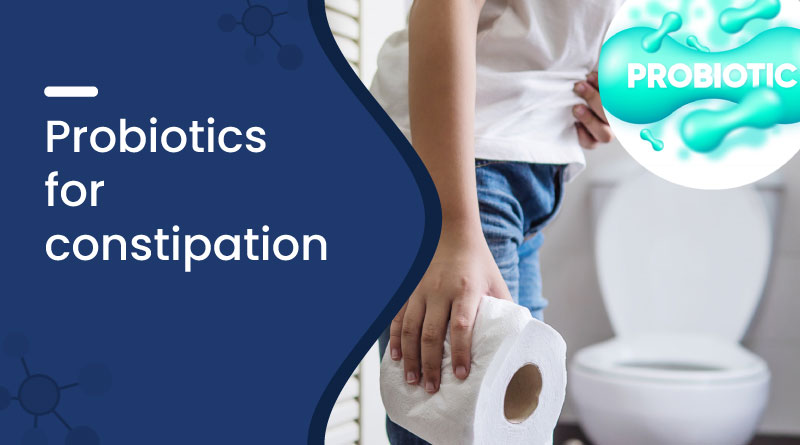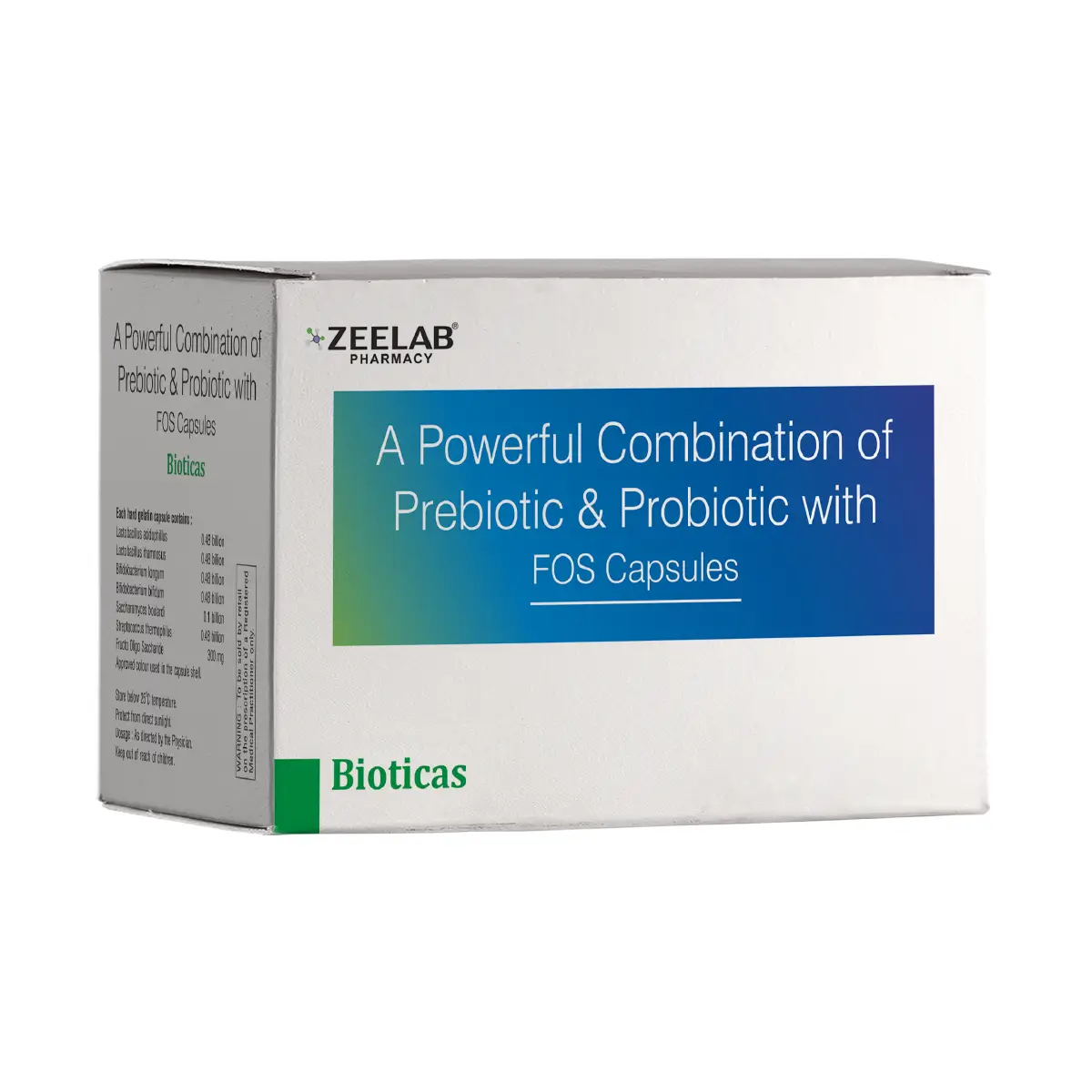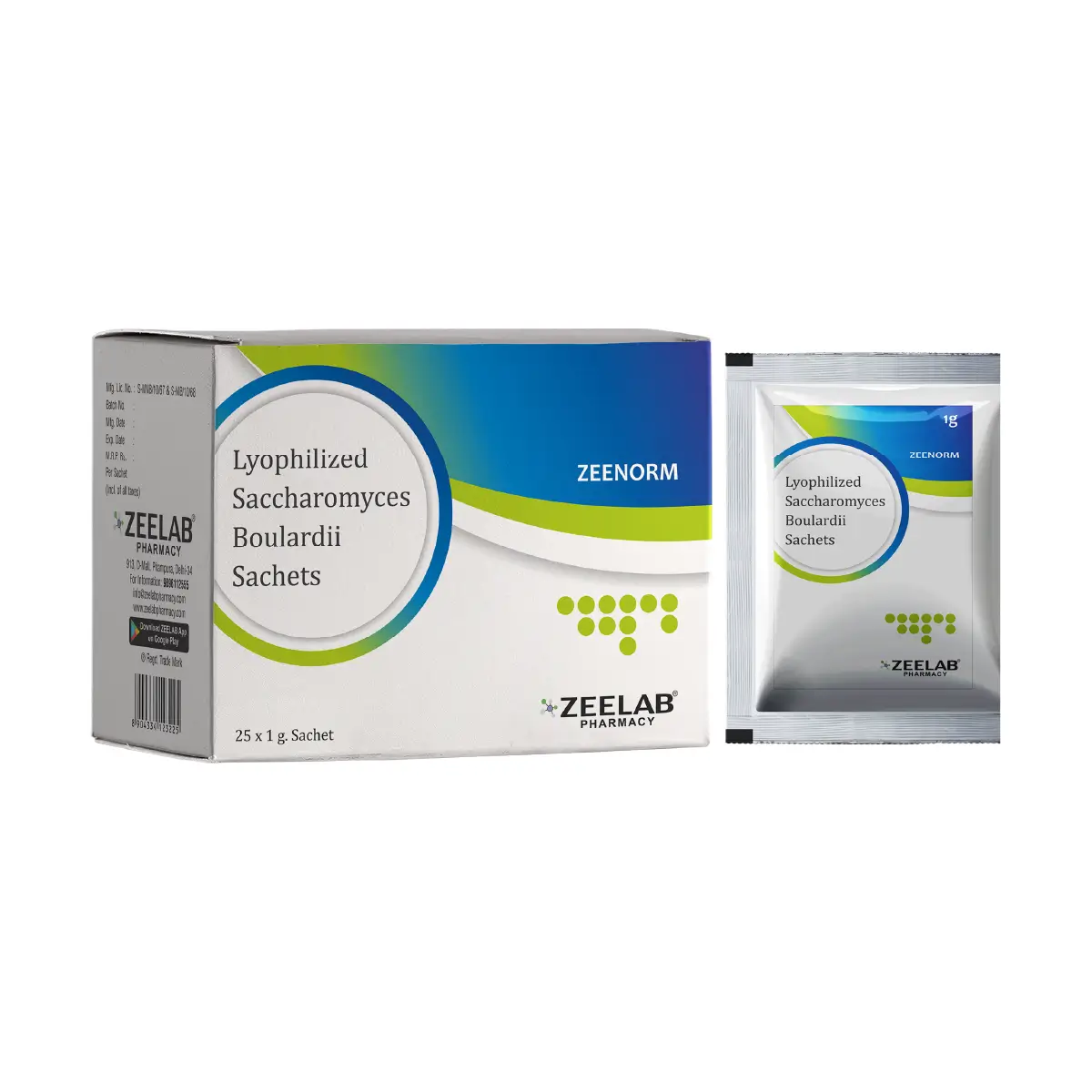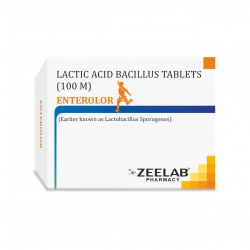Best Probiotics for Constipation Relief


Constipation is a widespread digestive concern that affects people across all age groups. Though occasional cases are usually nothing to worry about, chronic constipation can interfere with daily comfort and routine. Probiotics, known as friendly bacteria, may help ease this by supporting digestion and encouraging natural bowel movements. In this blog, we will explore the importance of probiotics for constipation, the best food sources of probiotics, their side effects, and much more.
What Are Probiotics?
Probiotics are beneficial bacteria that offer health advantages when consumed in the right amounts. These beneficial bacteria live in your gut and help maintain a healthy balance of the gut microbiome. They support digestion, nutrient absorption, and immune function, making them vital for overall health.
How Probiotics Help with Constipation?
Studies suggest that certain strains like Bifidobacterium lactis, Lactobacillus casei, and Lactobacillus rhamnosus are particularly effective in relieving constipation symptoms. They promote better digestion by:
- Regulating bowel movements: They improve gut motility by restoring healthy gut flora.
- Softening stool: Some probiotic strains promote water retention in the colon, easing bowel movements.
- Reducing gut inflammation: They help reduce intestinal discomfort and bloating, which often accompany constipation.
Most Common Reasons for Constipation
Understanding the root causes of constipation can help in managing it better. Some common reasons include:
- Low fiber intake
- Dehydration
- Lack of physical activity
- Stress or anxiety
- Changes in routine or travel
- Side effects of medications
- Underlying health issues (e.g., thyroid imbalance, IBS)
Also read - Natural Remedies and Supplements for Constipation Relief
Which Probiotic Foods Can Relieve Constipation?
Including natural probiotic-rich foods in your meals can support gut balance. Here are some top options:
- Curd (Dahi): A simple Indian probiotic that improves digestion.
- Buttermilk (Chaas): Refreshing and soothing for the digestive tract.
- Fermented pickles: Homemade versions are rich in live cultures.
- Idli and dosa batter: Fermented foods that are gentle on the gut.
- Kimchi and sauerkraut: Fermented vegetables loaded with beneficial bacteria.
- Kefir: A fermented milk drink known for its digestive benefits.
- Kombucha: A probiotic-rich, fermented tea that supports digestive balance.
Also read - Ayurvedic Medicines for Constipation and Gas
Can Probiotics Cause Any Harm?
For most people, probiotics are safe. However, some people may experience temporary side effects like:
- Mild bloating or gas
- Changes in stool consistency
- Increased gut activity in the initial days
These symptoms usually disappear as the body adjusts. If symptoms persist, it’s best to consult a doctor, especially for people with weakened immunity or chronic conditions.
How Can You Prevent Constipation Naturally?
In addition to probiotics, following these tips can help maintain smooth bowel movements:
- Drink plenty of water
- Eat fiber-rich foods like fruits, vegetables, and whole grains
- Stay physically active
- Limit intake of processed and sugary foods
- Set a regular bathroom routine
Are Probiotics Good for Children with Constipation?
Yes, probiotics can be beneficial for children suffering from constipation. Some studies suggest that probiotic strains like Lactobacillus rhamnosus GG and Bifidobacterium infantis may help improve stool frequency and consistency in children. However, children’s digestive systems are still developing, so it’s important to:
- Use age-appropriate probiotic sources
- Start with small amounts and observe any changes
- Consult a pediatrician before giving probiotic supplements
Natural options like curd or buttermilk are often well-tolerated and can be safely included in a child’s diet.
Intake of Probiotic Supplement in Constipation
While probiotic-rich foods are effective, supplements can be helpful, especially in chronic or severe constipation cases. Probiotic supplements are available in the form of capsules, powders, or drinks to improve bowel movements. Supplements can be a good option if dietary sources aren't sufficient or tolerated.
Probiotics for Constipation
Below is a quick table format for the probiotic products mentioned:
| Product | Uses |
|---|---|
| Bioticas Prebiotic and Probiotic Capsule | Helps manage lactose intolerance, recurrent vaginal infections, and diarrhea; enhances immune function and detoxifies the body. |
| Enterolor 100 Tablet | Promotes digestive health, prevents diarrhea and gas, and strengthens the immune system. |
| Zeenorm Sachet | Replenishes beneficial gut bacteria, supports digestion, and minimizes infections and bloating. |
Also read - Probiotic Supplement in India
Conclusion
Probiotics offer a natural and gentle way to relieve constipation by restoring healthy gut bacteria and improving bowel movements. Adding probiotic foods to your diet, along with enough fiber and water, can greatly boost your digestive health. If symptoms continue, a medical consultation is always a wise step.
Frequently Asked Questions (FAQs)
Q. Do probiotics help in relieving constipation?
A. Yes, probiotics help relieve constipation by improving gut flora, enhancing bowel movement frequency, and softening stool consistency naturally.
Q. Can I take probiotics every day for constipation?
A. Yes, daily consumption of probiotic foods or supplements is generally safe and may help improve regularity over time.
Q. Can kids and elderly people use probiotics for constipation?
A. Yes, but it's best to consult a pediatrician or physician before starting them, especially for supplements.
Q. Can taking probiotics lead to any side effects?
A. Some people may experience temporary bloating or gas as their gut adjusts, but symptoms usually improve within a few days.
Q. Is yogurt enough as a probiotic for constipation?
A. Yogurt is a good start, but ensure it contains live active cultures. In some cases, supplements offer more concentrated strains.
Lactobacillus acidophilus (0.48 billion) + Lactobacillus rhamnosus (0.48 billion) + Bifidobacterium longum (0.48 billion) + Bifidobacterium bifidum (0.48 billion) + Saccharomyces boulardii (0.1 billion) + Streptococcus thermophilus (0.48 billion) + Fructo Oligo Saccharide (300 mg)
10 Capsules In 1 Strip
Lyophilized Saccharomyces Boulardii Sachet (282.5mg)
1gm powder in sachet
Lactobacillus Sporogenes (100 Million spores)
20 Tablets In 1 strip
Recent Blogs
Disclaimer : Zeelab Pharmacy provides health information for knowledge only. Do not self-medicate. Always consult a qualified doctor before starting, stopping, or changing any medicine or treatment.
Related Products
Need Medicines Quick?
Share location to check quick delivery serviceability.
Change Location
Location Access Needed
Your location appears to be blocked or disabled.
Please enable the location from your browser or
device settings.

₹ 0
0
Items added
Quick Links
Categories
Our Policies
2026 Copyright By © Zeelab Pharmacy Private Limited. All Rights Reserved
Our Payment Partners

 Added!
Added!
|
|
















